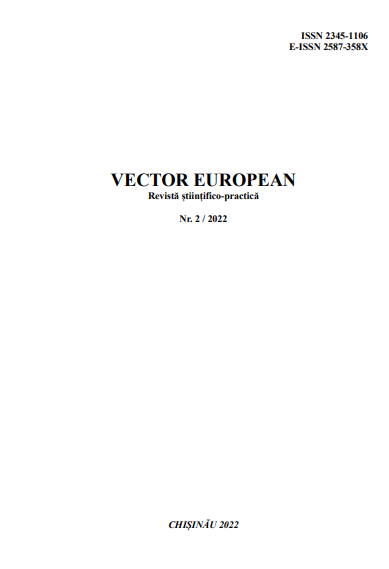DREPTUL LA LIBERTATE DE CONŞTIINŢĂ - DIMENSIUNI CONCEPTUAL-JURIDICE
THE RIGHT TO FREEDOM OF CONSCIENCE - DIMENSIONS CONCEPTUAL-LEGAL
Author(s): Nicolae SedlețchiSubject(s): Human Rights and Humanitarian Law, Theology and Religion, Sociology of Religion, Sociology of Law
Published by: Universitatea de Studii Europene din Moldova
Keywords: individual; society; freedom; conscience; tolerance; religion; beliefs; freedom of conscience; religious freedom; religious beliefs; positive freedom; freedom of worship;
Summary/Abstract: Freedom of conscience and religion is a natural right, which is meant to recognize and protect the human person as an autonomous spiritual being, as a free man. It is relevant to note that already at the beginning of the 20th century freedom of conscience and religion was seen as one of the most important personal spiritual freedoms. Freedom of conscience as a natural right exists independently of any regulation. However, in order to enshrine it in principle, to arrange it and to ensure its respect, the intervention of the state is mandatory. By conferring the normative aspect on freedom of conscience, the state transforms it from natural freedom to public freedom. Thus, the integration of freedom of conscience in the positive legal system leads to its evolution from natural freedom to public freedom. Freedom of conscience as public freedom represents a universal and abstract legal freedom, a power of self-determination of the individual, based on the existence of a field of freedom-autonomy, which is intangible both for public power and for individuals. The exercise of this freedom has as its only limit the non-infringement of the liberties of others.
Journal: Vector European
- Issue Year: 2022
- Issue No: 02
- Page Range: 24-30
- Page Count: 7
- Language: Romanian

